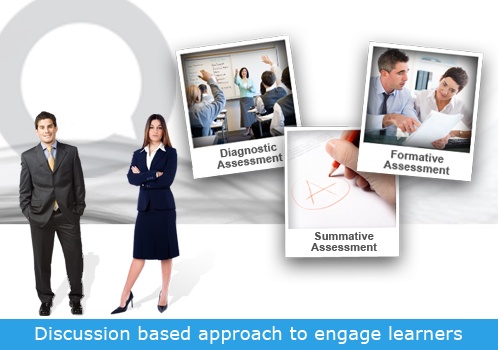Evaluation Strategies For True Learning
Evaluation is an essential part of the learning process in higher education. It allows instructors to determine whether students learn the material and achieve the intended learning outcomes. However, traditional evaluation methods, such as multiple-choice tests and quizzes, often measure only memorization and recall of information rather than true understanding and application of knowledge. Higher education institutions must adopt evaluation strategies that assess critical thinking, problem solving, and practical application of knowledge to ensure learners are learning, not just memorizing.
Effective Evaluation Strategies In Higher Education
Performance Assessments
Performance assessments are evaluation methods that require learners to demonstrate their understanding of a topic or skill by completing a task or project. Examples of performance assessments include essays, research papers, case studies, oral presentations, and hands-on projects. Performance assessments effectively evaluate learners' critical thinking, problem solving, and practical application of knowledge, requiring learners to apply what they have learned in a real-world context.
For example, in a business ethics course, learners could be asked to analyze a case study and propose an ethically responsible course of action. This assessment requires learners to think critically about the case study's ethical implications and apply their knowledge of ethical theories and principles to develop a practical solution.
Portfolios
Portfolios are collections of learners' work demonstrating their progress and achievement over time. Portfolios can include written work, projects, presentations, and other artifacts that showcase the learner's learning and growth. Portfolios effectively evaluate learners' ability to reflect on their learning, connect ideas across disciplines, and apply their knowledge and skills to real-world problems.
For example, in a journalism course, learners could be asked to create a portfolio of their work, including news articles, feature stories, and opinion pieces. The portfolio could also include a reflective essay in which learners discuss their growth as writers and journalists and how they have applied what they have learned to their work.
Group Projects
Group projects are collaborative assignments in which learners work together to complete a task or project. Group projects effectively evaluate learners' ability to work collaboratively, communicate effectively, and apply their knowledge and skills to real-world problems.
For example, in a psychology course, learners could be asked to work in groups to design and conduct a research study. Each group member could be responsible for a different aspect of the study, such as data collection, data analysis, or report writing. This type of assessment requires learners to work collaboratively and to apply their knowledge of research methods and statistics to a real-world problem.
Problem-Based Learning
Problem-based learning is an instructional approach in which learners are presented with a real-world problem or scenario and are asked to work collaboratively to solve the problem. Problem-based learning effectively evaluates learners' ability to apply their knowledge and skills to real-world problems, work collaboratively, and think critically and creatively.
For example, in a nursing course, learners could be presented with a case study of a patient with a complex medical condition. Learners would then work in groups to diagnose the patient's condition, develop a treatment plan, and monitor the patient's progress. This assessment requires learners to apply their knowledge of anatomy, physiology, pharmacology, and other nursing skills to a real-world problem.
Authentic Assessments
Authentic assessments are evaluation methods that simulate real-world tasks or challenges. Authentic assessments effectively evaluate learners' ability to apply their knowledge and skills to real-world situations, think critically and creatively, and work collaboratively. Examples of authentic assessments include simulations, case studies, and role-playing activities.
For example, in a teacher education course, learners could be asked to participate in a role-playing activity in which they simulate a parent-teacher conference. Learners would be assigned a role as either a parent or a teacher and would have to prepare for the conference by reviewing student work and developing talking points. This assessment requires learners to apply their knowledge of child development, educational psychology, and communication skills to a real-world situation.
Peer Assessment
Peer assessment is an evaluation method in which learners evaluate each other's work or performance. Peer assessment evaluates learners' thinking, communication, and collaboration skills. Peer assessment provides learners with valuable feedback and encourages them to reflect on their learning and performance.
For example, learners could be asked to peer-review each other's essays in a writing course. Learners would be provided with a rubric or checklist to evaluate the quality of the essay, including the strength of the thesis, the clarity of the argument, and the effectiveness of the evidence. This assessment requires learners to think critically about their peers' writing quality and provide constructive feedback.
Formative Assessment
Formative assessment is an ongoing evaluation process that occurs throughout the learning process. Formative assessment effectively evaluates learners' progress and understanding, identifies areas of strength and weakness, and provides feedback for improvement. Formative assessment can include quizzes, tests, class discussions, and other activities that allow instructors to monitor learners' progress and adjust instruction accordingly.
For example, in a mathematics course, learners could be asked to complete a weekly quiz that assesses their understanding of the material covered in class. Instructors can use the quiz results to identify areas of weakness and adjust instruction accordingly, such as providing additional practice problems or explaining complex concepts in more detail.
Conclusion
Evaluation is an essential part of the learning process in higher education. Still, traditional evaluation methods often measure only memorization and recall of information rather than true understanding and application of knowledge. Higher education institutions must adopt evaluation strategies that assess critical thinking, problem solving, and practical application of knowledge to ensure learners are learning, not just memorizing. Performance assessments, portfolios, group projects, problem-based learning, authentic assessments, peer assessment, and formative assessment are all effective evaluation strategies that can be implemented in higher education to ensure learners are genuinely mastering the material. By adopting these strategies, instructors can better assess learners' progress and understanding and ultimately prepare them for success in their chosen careers.









